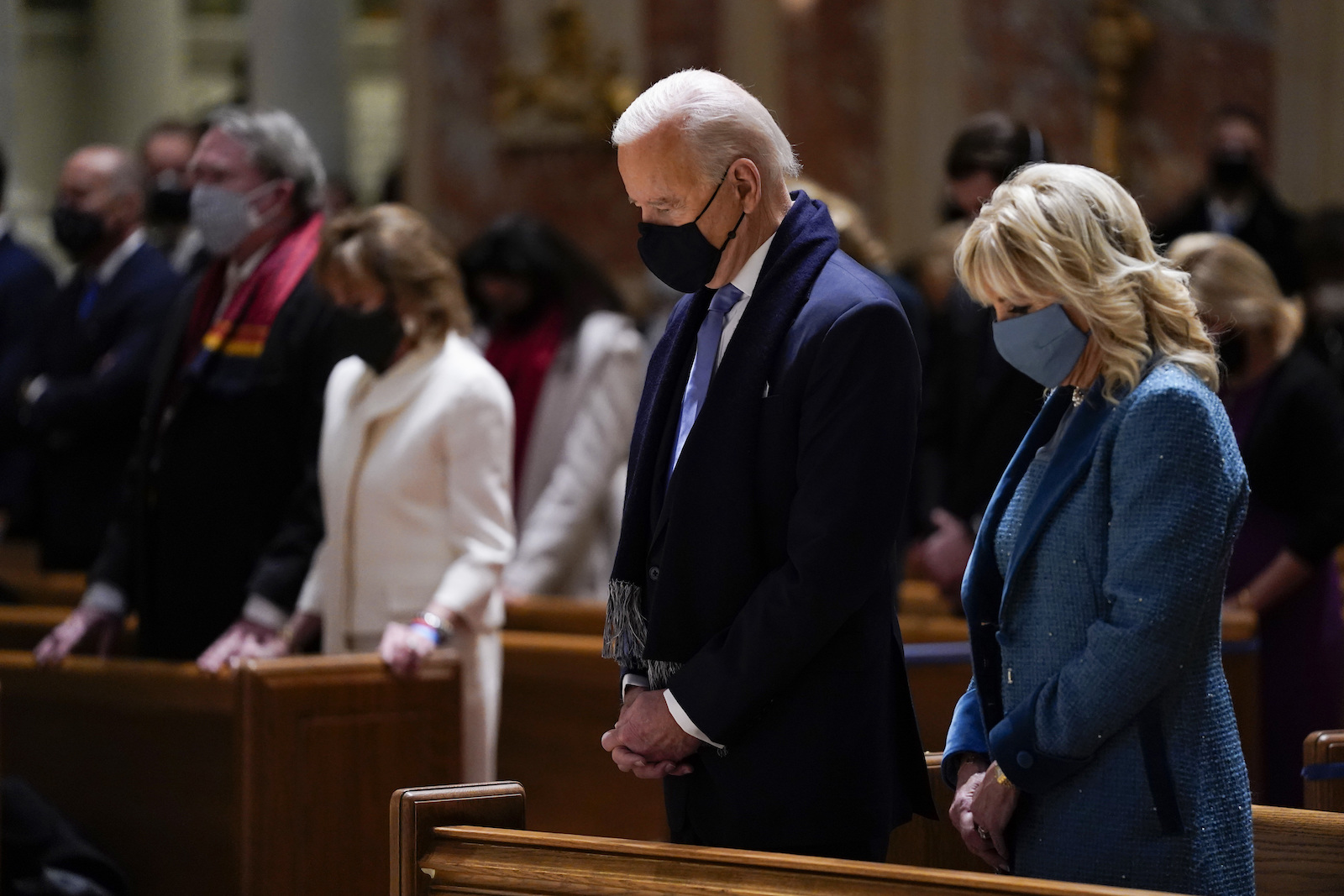
(RNS) — In a letter released Saturday (May 1), San Francisco Archbishop Salvatore Cordileone stated that pro-choice Catholic politicians should be banned from receiving the Eucharist. At the U.S. Conference of Catholic Bishops meeting next month, a vote on whether to commission a formal document addressing the issue is on the agenda.
It’s no secret who the bishops escalating this campaign are targeting: President Joe Biden is our first Catholic president in half a century. The most renowned Catholic resident of Cordileone’s archdiocese is the speaker of the House, U.S. Rep. Nancy Pelosi. Both are in favor of reproductive rights.
Bishops have every right to challenge Catholic politicians on abortion. The sanctity of life in the womb is a foundational issue for the church. But the real question for the bishops is how to most effectively bear witness to the dignity of all life in a diverse and contested political arena.
RELATED: Catholic bishops who want to deny Biden Communion may have to reckon with the pope
Deploying Communion as a bludgeon to selectively sanction elected officials on a single issue is not the answer. Politicizing a sacrament is pastoral malpractice, whether directed against Republicans or Democrats. But the glaring inconsistency and hypocrisy in the selective use of Communion denial makes it nearly impossible for pro-Trump church leaders to rebut criticism that their concerns are more partisan than theological.
Catholic Republicans who defy church teaching are not policed the same way as Democrats. Former Attorney General William Barr — a Catholic who played an influential role in reviving the federal death penalty and presided over a rush of executions in the final days of the Trump administration — never faced calls from bishops to stop receiving Communion.
The Catholic Church teaches that executions are always unacceptable because, in the words of the Catechism, the death penalty is “an attack on the inviolability and dignity of the person.”
This has not stopped Catholic governors, such as Texas’ Greg Abbott, from embracing capital punishment. “Catholic doctrine is not against the death penalty, and so there is no conflict there,” Abbott breezily told reporters in 2014. He remains a proponent of the death penalty even after the Catechism was updated in 2018 to make the church’s long-standing opposition to capital punishment even more explicit.
By defining abortion as the definitive marker of Catholic identity in politics, the bishops risk marginalizing the church at a time when only the second Catholic president in history attends Mass every week and advocates for a policy agenda that in myriad ways aligns with Catholic social teaching.
I’m not arguing for silence. Pope Francis also strongly opposes abortion and yet rejects the public spectacle of culture-war confrontation. Instead, the Vatican has chosen to highlight common ground with the Biden administration on issues such as protecting migrants and addressing climate change, an existential threat to life.

In this Jan. 20, 2021, file photo, President-elect Joe Biden and his wife, Jill Biden, attend Mass at the Cathedral of St. Matthew the Apostle during Inauguration Day ceremonies in Washington. (AP Photo/Evan Vucci)
The pope has reminded Catholics that Communion is “not a prize for the perfect but a powerful medicine and nourishment for the weak.”
Church leaders viewed as more conservative than Francis have also rejected using Communion to sanction elected officials. Two decades ago, St. John Paul II, a hero in the anti-abortion movement, gave Communion to Rome’s then mayor, Francesco Rutelli, a Catholic who led his party’s campaign for liberalized abortion laws.
When Pope Benedict XVI visited the United States in 2008, John Kerry and Pelosi received Communion during a papal Mass at Nationals Park. New York Cardinal Timothy Dolan, a vocal ally of Donald Trump during the 2020 election, said he would not have denied Biden Communion after the presidential candidate was turned away by a South Carolina priest during the campaign. Cardinal Wilton Gregory, Biden’s bishop when he resides in Washington, also rejects weaponizing the Eucharist.
RELATED: The Biden Communion stories are stupid
If bishops want to change minds and hearts on abortion, they need to face the hard truth that their nearly 50-year campaign to overturn Roe v. Wade has failed to rally even many Catholics. Surveys find that most Catholics don’t believe that criminalizing the procedure is the only or even best path forward.
By yoking the fight to end abortion with the crass misuse of a sacrament, U.S. church leaders will only hurt their own credibility, further divide our parishes and distance themselves from the pastoral leadership of Pope Francis.
As the saying goes, when you’re in a hole the best advice is to stop digging.
(John Gehring is Catholic program director at Faith in Public Life and author of “The Francis Effect: A Radical Pope’s Challenge to the American Catholic Church.” The views expressed in this commentary do not necessarily reflect those of Religion News Service.)
